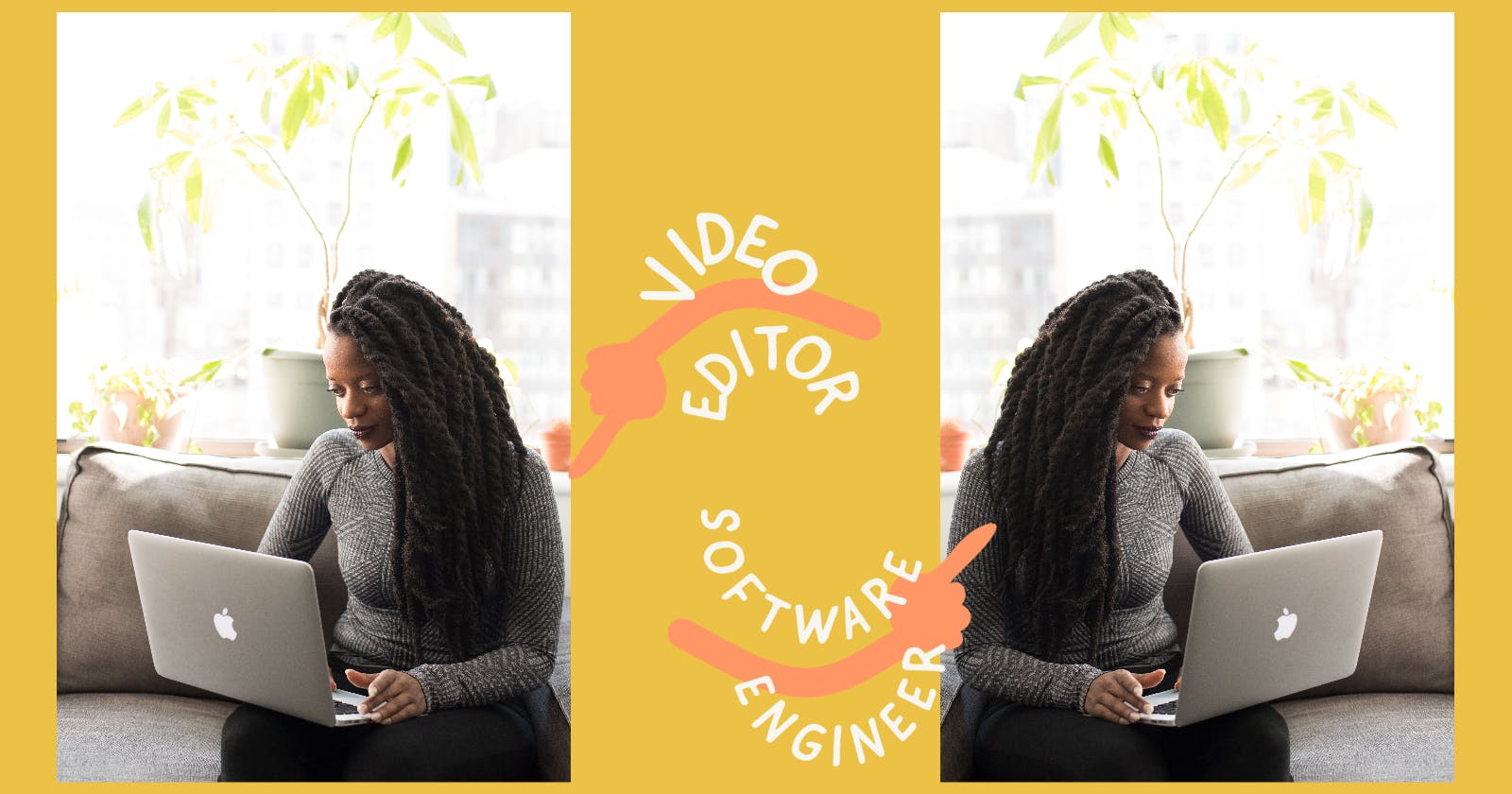I've been a professional video editor for over 12 years. In that time, I've worked with some of the biggest names and brands in the world. I've comfortably made over six-figures for most of that time, I'm good at my job, and I get to set my own schedule. So naturally, when I tell people I'm transitioning to a career as a software developer, their first question is often along the lines of "WHYWOULDYOUDOTHAT????!??!?"

I assure you, concerned friends and family, that I am doing fine. I needed a change of pace and a new challenge, and the time was right to make the switch.
Transitioning from one career to another is never going to be easy. However, if you're switching careers, rest assured that you are not starting from scratch! In this blog post, I'll explore how the skills I used every day as a video editor are transferable to software engineering.
Problem Solving

As a video editor, problem solving is a way of life. Whether it's something small like figuring out how to fix a continuity error, or bigger, like completely changing the tone of a video after receiving feedback, video editors are always finding creative solutions to problems.
This same skill is required in software engineering. Writing code is all about problem-solving. Every time you encounter a bug or error, you must use your problem-solving skills to find a solution. Video editors can use their tenacity and experience in creative problem-solving to excel as software engineers.
Attention to Detail

Video editing requires a high level of attention to detail. Every frame, cut, and transition must be precise and deliberate. Good-enough will rarely cut it (see what I did there?). It needs to be good. Period.
This same level of precision is required in software engineering. When programming, your code's sole purpose is to tell a computer what to do, and so it needs to be precise. Even the slightest mistake can cause errors in the program. As a video editor, you are trained to pay attention to the smallest details, and thus have a leg up when you're entering into the world as a software engineer.
Communicating Ideas Effectively

Okay, so you've got problem solving skills, and an obsessive attention to detail, but can you talk about it? In my career as an editor, the difference between a good and a great editor was their ability to communicate with others. Whether that is through expressing ideas they feel passionate about, being able to take feedback objectively, or creating effective boundaries to protect their work/life balance, editors who can talk to their peers and managers always end up with better (and more!) work.
There should be no surprise at this point that software engineers also benefit from solid communication skills. Set aside whatever stereotype you have in your head about what a software engineer looks like, because we come from all backgrounds and encompass all personality types. And the engineers who can communicate the most effectively are positioned best for advancing to wherever they want their careers to go.
And SO Much More

Or maybe, you never really liked it, but found you were good at it so you stuck around a bit too long?There's so much more to consider when transferring video editing skills to software development:
Video editors have to work under constant deadlines, using their ingenuity and instinct to craft the content we all consume.
Editors have to apply their technical and creative knowledge to the needs of both their clients and the audience.
Editors have to understand how to take raw footage (data) and turn it into a compelling story.
They also have to be able to take someone else's work and improve upon it.
Editors have to keep their files organized, so that if they have to hand off files, another editor can jump right in and get to work.
Video editors have to collaborate with other editors, directors, DPs, executives, clients, and so many other stakeholders to deliver the best end product possible (setting aside their own egos in the process).
Editors have to keep up with the latest software, and be quick at adapting and implementing new technologies into their workflow.
And let's not forget the importance of being effective storytellers.
Okay, But Why?

Transitioning from a video editor to a software engineer may seem like a leap, but as you've now learned, the skills are highly transferable. Problem solving, attention to detail, and communication are just a few examples of how the skills learned as a video editor can be applied to software engineering.
As for why someone might do it, it depends on your personal situation. Maybe you're tired of freelancing and can't find a decent 9-to-5. Maybe it's the lack of work/life balance. Maybe it's just that you've changed, and the work doesn't suit you like it once did?
Whatever the reason is for you, just know that you have options. You don't have to leave behind the amazing skills (or connections!) that you've made as an editor.
Anyway...
What I love most about software engineering is that it allows for so much growth. While many of my editing skills are transferable, the opportunity to learn and evolve in my understanding of the world feels limitless at this stage of my journey.
Also, I really love the work. You get to take ideas and bring them into reality through a some lines of code. It's like having a superpower. And the rush you get when you solve a difficult issue is unlike anything I've ever experienced.
I hold nothing but love and appreciation for all of the editors who are in it for the long haul. You are unsung heroes, and nothing we watch would be the same without you. With that said, if any of you are looking to make the leap over to software engineering, I'll be on the other side welcoming you over.


